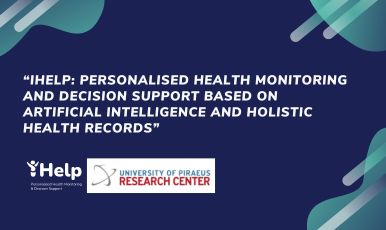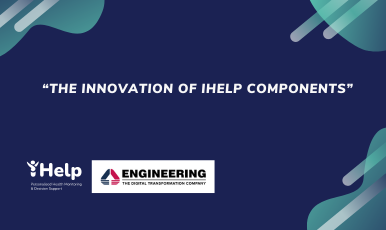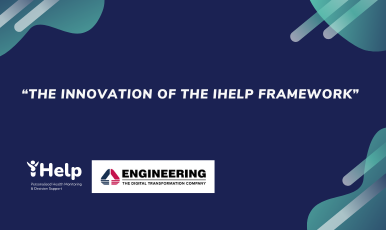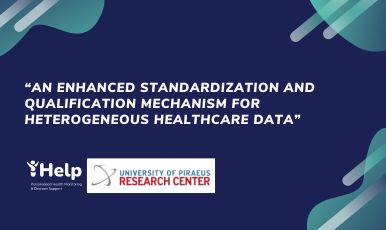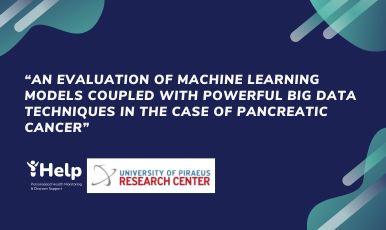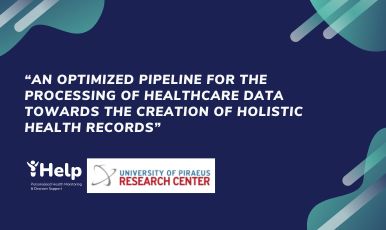Our research paper entitled “iHELP: Personalised Health Monitoring and Decision Support Based on Artificial Intelligence and Holistic Health Records” has been published in the context of the Proceedings of 2021 IEEE Symposium on Computers and Communications (ISCC). The presentation of this paper was held on 7th of September 2021, in Piraeus, Greece. It should be noted that this research work introduced the key instances, designing approaches, and guidelines for the implementation of the integrated iHelp platform.
The scientific and clinical research have advanced the ability of healthcare professionals to more precisely define diseases and classify patients into different groups based on their likelihood of responding to a given treatment, and on their future risks. However, a significant gap remains between the delivery of stratified healthcare and personalization. The latter implies solutions that seek to treat each citizen as a truly unique individual, as opposed to a member of a group with whom they share common risks or health-related characteristics. Personalization also implies an approach that considers personal characteristics and conditions of individuals. This paper investigated how these desirable attributes can be developed and introduced a holistic environment, the iHelp, that incorporates big data management and Artificial Intelligence (AI) approaches to enable the realization of data-driven pathways where awareness, care and decision support is provided based on person-centric early risk prediction, prevention, and intervention measures.
The iHelp platform incorporates AI-driven actionable insights into the Pancreatic Cancer prevention strategies, screening programs and treatment processes. It implements innovative AI algorithms and techniques, ranging from multi-modal causal analysis and real-time anomaly detection to disease trajectories, real-time risks prediction, forecasting of risk trajectories and detection of behavioral swings. To this end, iHelp delivers a novel personalized healthcare framework that enables the collection, integration, and management of health-related data from various sources (medical records, lifestyle, behaviors, social media interactions) in a standardized structure, the HHRs. The iHelp outcomes do not only enable the integration of data coming from multiple sources, but they also provide ways of developing advanced AI techniques that can model the specific conditions of individual Pancreatic Cancer patients to gather reliable predictions that can be used in the development of effective care plans.

